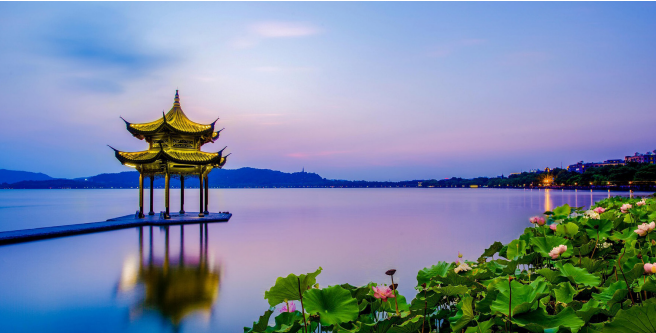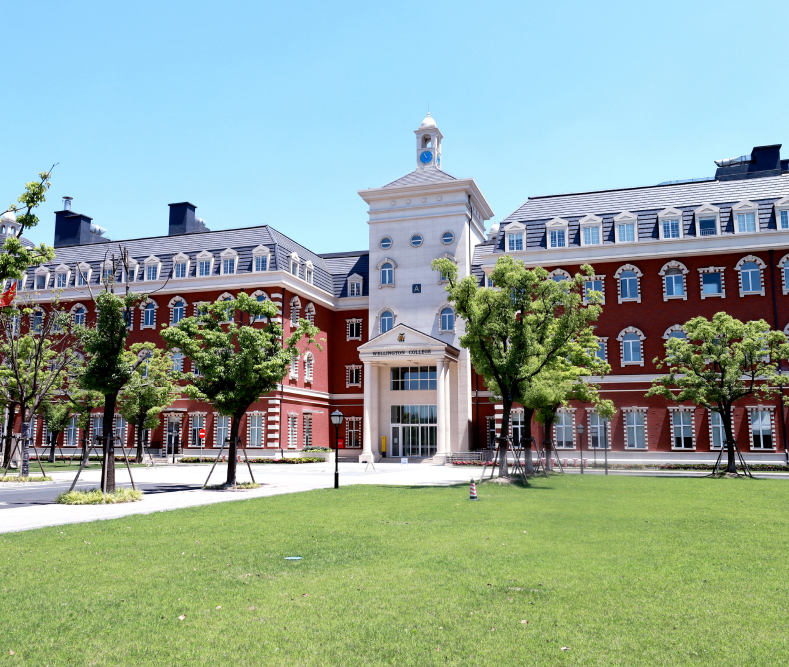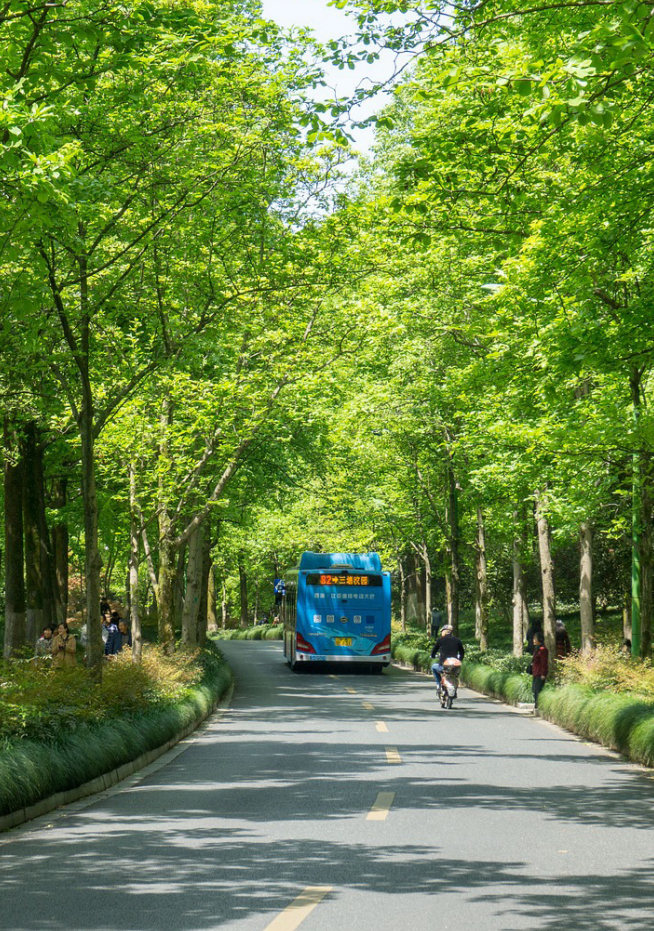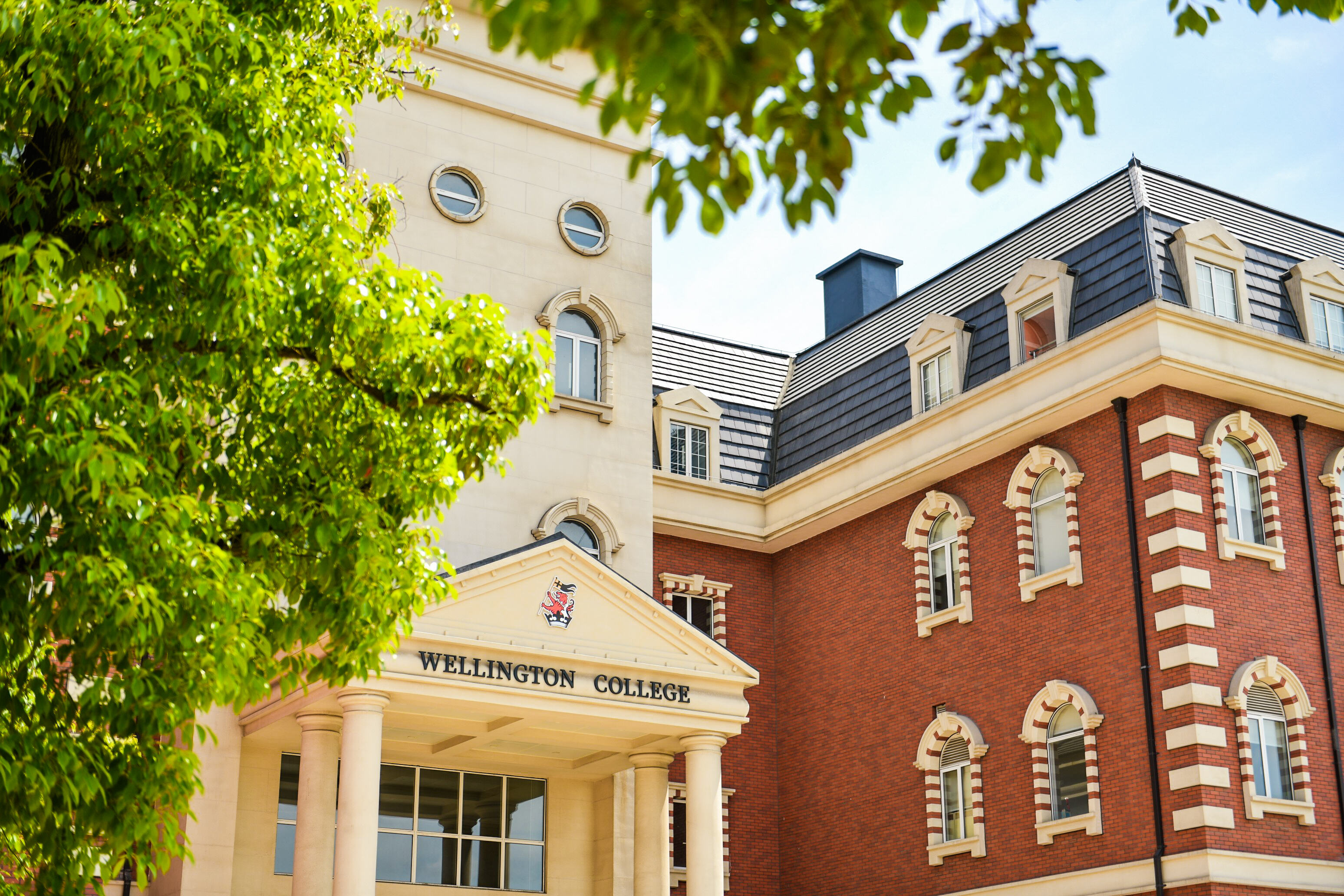Hangzhou, capital of Zhejiang Province in East China, is one of the more modern and prosperous cities in China, about 100 kilometers (60 miles) southwest of Shanghai. It sits at the southern end of the Grand Canal of China and is one of China's famous seven ancient national capitals. It recently host ed the G20, is known throughout China as a technology hub and is home to the e-commerce giant Alibaba.
Living in Hangzhou offers the perfect opportunity to experience the exciting combination of beautiful scenery and profound culture.
Enquiry Form
If you would like to book a private campus tour, please register your interest in the following enquiry form:
There is a popular saying: "Above there is heaven, below there are Hangzhou and Suzhou". Hangzhou's "heavenly" beauty attracts hundreds of thousands of tourists to its exquisite West Lake (Xi Hu) area each year to enjoy the placid lake, beautiful gardens, lavish temples and lakeside teahouses.

Xiaoshan, a district at the Southeast of Hangzhou where Wellington College Hangzhou is based, was initially developed as a science and technology cent re. It has its own Xiaoshan International Airport and is well connected to the downtown area.

What is the climate in Hangzhou?
Hangzhou weather is generally warm and mild all year round, with abundant sunshine and rainfall. There are four clear seasons – a wet and rainy spring, a hot and humid summer, a warm and clear autumn and a dry and cold winter. The hot temperatures of summer can last until December. In comparison to the summer, both autumn and spring are relatively short.
What is the life like as a foreigner living in Hangzhou?
Hangzhou is classed as a tier 2 city, population approximately 9 million people and is viewed as one of the most beautiful cities in China. It is a very clean and modern city and is home to e-commerce giant Alibaba and western companies such as Tesla. The majority of vehicles are electric/ hybrid cars and e-bikes. Bicycles are readily available to rent. Much of the city is green with parklands, lakes and general decoration of the streets. Large shopping malls are plentiful housing stores such as Nike, Adidas, Under Armour, H&M, Zara, Jack Jones, Superdry, Prada, Decathlon etc.
Is it expensive to live in Hangzhou?
Yes and no, you can live an expensive life dining at the finest restaurants or eat at cheap places with the locals. Utilities are very cheap with an average water bill approximately £20 for 6 months usage. Locally sourced items are much cheaper than imported western items of the same kind e.g. local milk is cheaper than imported milk. Transportation (taxis, Metro, trains etc.) is very cheap in comparison to major western cities.
What’s the weather like in Hangzhou?
Hangzhou is roughly on the same latitude as Cairo - Egypt, so expect a hot, humid and fairly long summer. Our sports days are held in November when the temperature is a lovely 20-25 degrees. Winter can get cold but will only last a couple of months. Spring can be rainy.
What is the nightlife like in Hangzhou?
Hangzhou is a thriving city that comes alive at night. Whether that be the river-front light and fountain shows or the buzz downtown from the restaurants, bars and night clubs. You will find an amazing array of traditional Chinese cuisine, small shops to high end restaurants, expat bars such as Wades and 9 Bar, to local night clubs, and all referencing the unique culture of Hangzhou and Zhejiang Provence.
What is the nightlife like in Hangzhou? Regular haunts such as Wades, 9 Bar, Shares, Social10 and Jazz Bar are known hotspots for expats in the city. Amazing lightshows projected onto buildings on the river front are a regular occurrence. There are numerous cinemas showing the latest film releases in English and theatres housing touring productions including Evita and Stomp. Cirque Du Soleil has a permanent show based in Hangzhou. Restaurants and bars regularly offer happy hour 2-4-1 deals, and this is without even mentioning KTV (karaoke bars) that are hugely popular with the locals.
Is there much for families to do when living in Hangzhou?
The large shopping malls (and there are lots of them) all cater for family activities. Often a whole floor will be dedicated to children, that could include: shops, play areas, soft play, trampoline parks, ice rinks or open workshops. Added to this there are temples, lakes and parks, bamboo forests, Little Venice, Fake Paris, safari parks, amusement parks and water parks. Your child will never get bored!
Emergency Phone Numbers in Hangzhou
Police - 110
Ambulance service - 120
Fire Service - 119
Often you will connect through to a Chinese speaker only. If you keep repeating the word “English”, they will connect you through to an English speaker.
What is the transportation in Hangzhou?
Metro: The Metro in Hangzhou is very modern, safe and rapidly expanding to allow easier access to more of the city including our campus. It is efficient and very affordable starting at 2 RMB and rising depending on the number of stations you travel through. The Metro can get busy during rush hour so be prepared to lose some of your personal space. The app MetroMan gives an up-to-date map of current and new stations. You can buy tickets at manned ticket offices, automatic ticket machines or use Alipay to scan through the barriers. You can even use your 4G whilst riding the Metro!
Taxi: Taxis are the most common way of getting around Hangzhou. They are abundant in numbers and cheap in comparison to western prices. Very few taxi drivers speak English, so the easiest way is through using the Didi taxi app (similar to Uber). The app allows you to select your starting and final destination point. If you are hailing a taxi off the street, know your destination beforehand and show the driver. Taxis in Hangzhou are very affordable and a popular way of moving about the city.
Bus: Buses can be difficult to navigate for non-Chinese speakers. If you want to take a bus, check the route in advance using the Amaps app. You can always ask the driver for help. Show him/her the station you want to go to, and they will let you know at arrival. Bus prices usually start at 2 RM B.
Railway: Hangzhou has several railway stations, the main one being Hangzhou East Railway Station (Hangzhoudong). High speed trains, including Bullet Trains, depart this station daily to the rest of China, across an extensive rail network. Shan ghai is easily accessible with a journey time of 1 hour at the approximate cost of 73 RM B. Physical tickets are no longer required for rail journeys, just a confirmation code and your passport are needed. Tickets can be bought through WeChat, Alipay, Trip.com or at the station ticket office. It is advisable to arrive 30 mins before your departure time.
Tip: You must carry your passport to travel by train. Items that could be a fire hazard (some deodorants or mosquito sprays) are not allowed to be taken on board.
Airport: Xiaoshan International Airport is located to the east of the city. Xiaoshan International Airport is well connected for all of Asia with direct flights operating daily. Currently the airport is only accessible by car/ taxi, however, plans are in place to extend the Metro line.

To learn even more about living in Hangzhou, we invite you to download our Welcome to Hangzhou booklet.
Download





